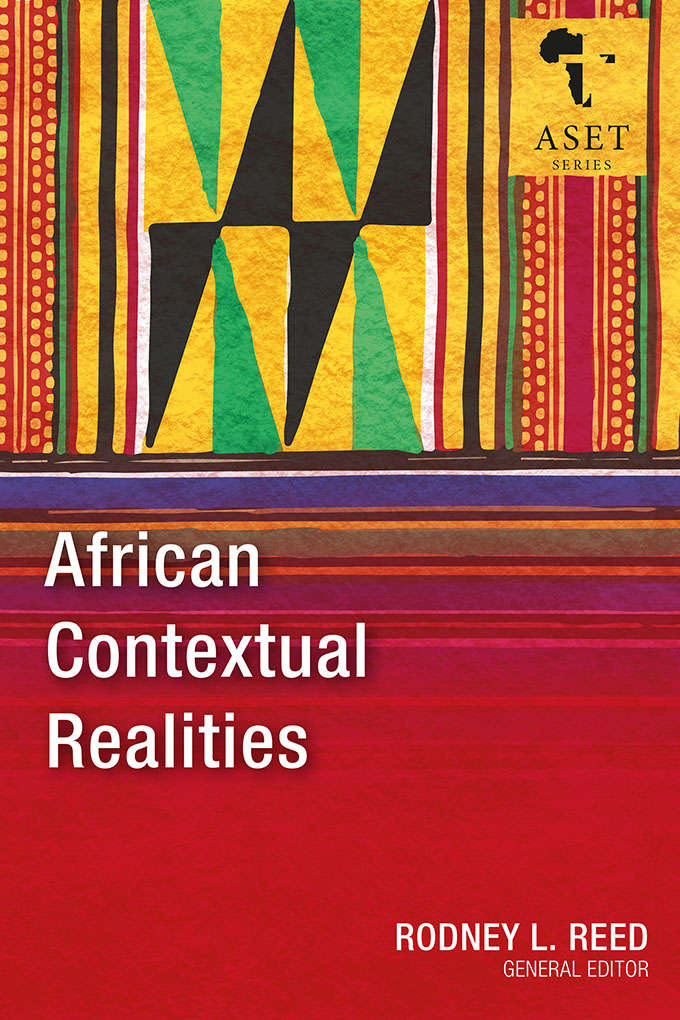Religion, a Means to Disobedience: A Reflective Analysis of the Story of the Golden Calf in Exodus 32
By Hermann Mvula
From African Contextual Realities, edited by Rodney Reed, (Langham Global Library, 2018).
The story of the golden calf has been described as “the greatest scandal of the wilderness period.” In Egypt, and during their sojourn in the wilderness as well as in their life in Canaan, the Israelites lived in environments where cultures related only to corporeal forms of deity. The other peoples believed that they must pay homage to God and win his grace, but they could not relate to an intangible deity. They must therefore deify objects of their choosing and make them represent their lofty idea of the world. And, according to John Oswalt, “Israelites schooled in the Abrahamic belief in one omnipresent, incorporeal God, were nevertheless influenced by surrounding cultures. Contrary to the other peoples, they did believe that man could relate to an incorporeal God, but they clung to the notion that a concrete, tangible link is required, hence, the visible Golden Calf.”
The evidence demonstrates that after their Sinai experience, the Israelites viewed Moses as the primary intermediary between themselves and God. When God spoke the commandments, the experience overwhelmed the Israelites and they requested that Moses be their mediator and convey God’s message to them. Consequently, they might have thought that Moses was endowed with some properties of deity and powers to link them to the true God; “their mistake was that they saw their ‘intermediary,’ rather than God, as the initiative for revelation. For them, it was not God who had brought them out of Egypt by means of Moses, but Moses who had influenced God to redeem them.” Consequently, “without [Moses] there would be no further access to God and no method of securing his grace. But this time they sought a physical object rather than a living human. Physical objects, they reasoned, can be safely preserved; they don’t walk away and disappear as Moses did.”
In an era of rapid growth in cults, interest in the occult, and religious pluralism throughout the world, men and women are prone to demonic compromise of the holiness and true worship of God, by, among other things, personifying their religiosity in human figures. Thus, they become vulnerable to a form of “golden calf ” religion which can appear among us in various forms, especially among Africans in ways that manifest some demonic impulse. Frank Carver says, “When ethics run to legalism, we have a pagan rather than a Biblical spirituality.”
Consequently, evangelical theologians and Christians in Africa should be careful because, “where we find truth, often in close proximity we also find a way of thinking that distorts and faults that truth.” As a matter of fact, Carver argues, the religious pluralism exemplified by the cults and their central figures holds on to some “partial truth – such as a verse used as a proof-text – and blends it with an untruth so that the mix has the appearance of truth but in reality it is systematically false.” That is syncretism – the mixing up of things. Such is the lesson of the incident of the golden calf: if we are not careful, religion can indeed be a means to disobedience!
The story of the golden calf is our story today in contemporary Africa and world religions: the very way of trying to find fulfillment of our own legitimate deep spiritual needs by our own standards – religiosity. Religion itself can become idolatrous if it allows a perversion of total devotion to Yahweh, the only true God. Distorted religion can corrupt the fruit of the Spirit as quickly as outright sin. Idols, even idols of the mind, lead to ungodly actions. This is the heart of the story of the golden calf which evangelical theologians must articulate to the popular Christian understanding in Africa.
The Scriptures tell us that God cannot be mocked (Gal 6:7). This includes the fact that God will never tolerate any representation of himself, as he is above all things. He will never tolerate any intermediaries such as in African Traditional Religion (ATR), where ancestors are venerated and even worshiped. He created everything and cannot be reduced by our way of thinking and worshiping that is not according to the ways he has prescribed. From an evangelical perspective, this may be exactly what some religions do. How we should approach and worship God has been revealed by him and is contained in the Bible. We do not need to add anything else to this holy book.
Exodus 34:5–8 recounts the dialogue between God and Moses after the golden calf scandal. Moses sought assurance from God and requested him to show him his glory. God graciously allowed Moses to see his back and went further, pronouncing his holy character: “The LORD, the LORD God, merciful and gracious, longsuffering, and abounding in goodness and truth, keeping mercy for thousands, forgiving iniquity and transgression and sin, and that will by no means clear the guilty; visiting the iniquity of the fathers upon the children, and upon the children’s children, unto the third and to the fourth generation” (34:6–7 KJV). “Moses bowed to the ground at once and worshiped” (34:8). Moses’s response is what we are all urged to do as believers in Africa: reverently worship and serve Yahweh, for he alone is worthy of worship.
Therefore, Moses’s honoring and worship of God shows us how we should live our lives. Through his experience with God since his call in Exodus 3, Moses had come to understand that Yahweh, the God of Israel’s forefather Abraham, was a holy God and that idolatry could not coexist with him because he cannot be identified with the material world. Biblical faith is uniquely dependent on the truth that God transcends this world. Consequently, God cannot be likened to anything under the sun, beneath the earth, or in the waters (Exod 20:4–5). Finally, the following questions suggested by Frank Carver could form a basis of lessons from this rich narrative of the golden calf for both adherents of ATR and African evangelical theologians and believers:
1. Which golden calves in our culture today draw our loyalty and love away from God when we get impatient with waiting for God’s timetable?
2. Have we made the God whom we worship into an idol, a small fixed statue that we try to control and manipulate as a substitute for the free, untamed, mysterious, and surprising God of the universe who will not be tied down to small and humanly constructed images, ideologies, institutions, and idols?
3. How do we maintain this story’s delicate balance between divine judgment with consequences for disobedience and God’s dominant leaning toward mercy, forgiveness, and faithfulness to the promises he has made (see Exod 34:6–7)?
4. Are we, as Christians in Africa, maturing in our faith so that we will not be easily swayed by every wind that comes?
5. Do we in Africa act as Moses did, selflessly interceding for those who go astray or those who have not yet known Yahweh, the true God of the universe? Or what do we do with adherents of African Traditional Religions in Africa?
Contextually, as Africans, with our intrinsic nature of being religious, our worship must be to God alone. We must not disobey God’s Word, as that is blasphemous. We must not misinterpret God’s grace. We must be patient enough to wait on the Lord alone. We must not mix our worship of him with our reverence for and veneration of our ancestors, for that is tantamount to idolatry – making any form of image or likeness in our worship of God. Such tendencies amount to disobedience, syncretism, blasphemy, and deification of persons (our ancestors) and, ultimately, are a misuse of God’s name and a misinterpretation of the divine grace in our midst.
‘Religion, a Means to Disobedience: A Reflective Analysis of the Story of the Golden Calf in Exodus 32’ by Hermann Mvula, in African Contextual Realities (Part II: Addressing African Realities), edited by Rodney Reed (Langham Global Library, 2018). Used with permission.
Hermann Yokoniah Mvula (Author) attended Africa Nazarene University in Nairobi, Kenya, where he obtained both bachelor and master degrees in Theology. Mvula obtained his doctoral degree at Chancellor College of the University of Malawi. His field of research interests is political and public theologies, ethics, and governance. Currently, he is a lecturer in Biblical Studies (Old Testament Theology and Ethics) at Chancellor College of the University of Malawi, where he headed the Department of Theology and Religious Studies for two years.
Rodney L. Reed (Editor) is Chair of the Department of Religion at African Nazarene University in Nairobi, Kenya, and a member of the global missionary team for the Church of the Nazarene. An experienced pastor and ordained minister, he holds degrees from Olivet Nazarene University, Nazarene Theological Seminary, and Drew University. He and his wife, Sarah, have three daughters.

